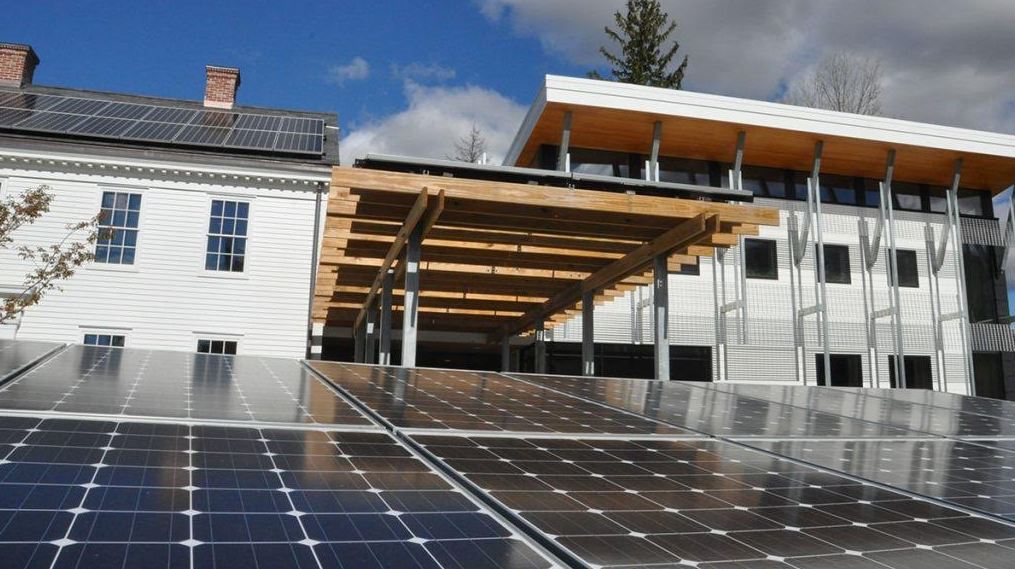
Williams Environmental Center Meets Six of Seven Building Challenge Criteria
WILLIAMSTOWN, Mass. — A year after starting its pursuit of the world's most rigorous sustainability certification for its new environmental center, Williams College has come up short on one of the key performance measures: net-zero energy use.
Twelve months of consecutive data show that the center has qualified in six of the seven environmental performance criteria for the Living Building Challenge (LBC), but without the energy standard it won't meet the standard necessary for full certification as a Living Building.
"We knew when we started that the Living Building Challenge is just that — a real challenge — and that it would take time, experimentation and ongoing learning to achieve full certification," said Amy Johns, director of the Zilkha Center for Environmental Initiatives. "What we have learned can be passed on to the community and to those who come after us in pursuit of the LBC, and that's what makes this building a valuable place for teaching."
The LBC program, administered by the International Living Future Institute, is the most stringent measure of sustainability in the built environment. It certifies buildings that have positive, regenerative environmental and community efforts. To meet the challenge, a building must demonstrate that it can live within its means, using only the electricity produced and water collected on-site and devoting 35 percent of its landscaping to food production.
Twenty imperatives determine ambitious goals in seven areas, known as petals: energy, water, materials, site, health, equity, and beauty. To date, only 11 buildings in the world have received full LBC certification.
With the center currently consuming more energy than it is producing, staff will continue collecting data until it can log 12 consecutive months of being net-zero (or better) for energy and apply for full certification. In the meantime, it will apply for partial certification, recognizing the community's significant accomplishments in all of the other areas. The International Living Future Institute announces its certifications annually in May, during its annual conference.
Consultants who have worked on other LBC buildings are reviewing energy consumption and generation for the building and will help explore ways to improve both, said Mike Evans, assistant director of the Zilkha Center, which shares the building with the Center for Environmental Studies (CES). The consultants will conduct full assessments of the photovoltaic production and the original building modeling against performance consumption. They also will verify that the heat pump operations are in line with best practices.
Sitting in the heart of campus, the environmental center is open 24 hours a day, seven days a week. In addition to office space for the Zilkha Center and CES, the building includes study areas, meeting and classroom space, and a kitchen that students may use to prepare and cook meals.
"The purpose of the building is to live in it and learn from it," says Ralph Bradburd, CES chair and the David A. Wells professor of political economy. "The learning justifies the time, effort and money we put into it."
Tags: energy efficiency, Williams College,















